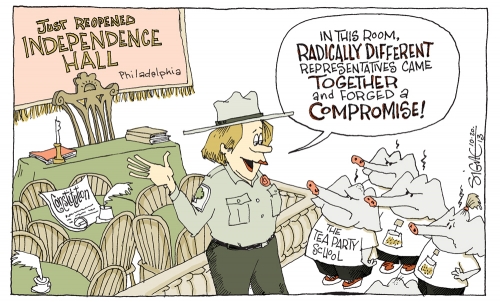Update: You can register and vote on the same day tomorrow!
It is that time of year again. Another November, another election. And again, I have the same gripe about voting here that I have had since moving here: there is no voting guide (for instance, my posts on Nov 6, 2012 and Oct 5, 2010). Sure, growing up in California spoiled me in many ways. Life is easy there. Warm winter days, and the mailman delivered all of the information I needed to know about primaries and elections: where to go to vote, descriptions of the candidates and issues, statements and analysis of the pros and cons of ballot measures, and sample ballots to take to the polls.
But now I live in New England. And just as they prefer their winters to be harder, they apparently prefer to make voting harder. So as a public service to anyone coming across this blog, I now provide you with a list of resources on where to find information about our local elections here in Middletown, CT. I provide this as information only. I have my own opinions about the candidates and issues, but I’ll keep them out of this post.
The City of Middletown
- If you haven’t already registered to vote,
you are too late. Butyou are not too late! Voter registration on voting day is now possible!- http://middletowneyenews.blogspot.com/2013/11/new-this-year-register-and-vote-in-one.html
- To register for future elections, visit this page on the city website.
- City of Middletown Polling Locations
- A Sample Ballot
OK, so the City has much of the basic information you need. But how do you learn about the candidates and issues? This year, in Middletwon, we are voting for individuals to fill the following important positions: Mayor, Common Council, Treasurer, Board of Education, Board of Assessment Appeals, Planning and Zoning Commission, and “Planning Commission Alternate”.
To learn about the candidates, I suggest the following resources:
- Middletown Patch
- This is the only local source I have found that offers organized comprehensive coverage of local elections. Highly recommended. Specifically…
- This is the page where the Middletown Patch lists all of the candidate bios.
- This is the page that lists their “Elections” stories
- Middletown Press
- This is the local paper. They should be good at providing comprehensive election coverage. But I have never seen them do this. That said, there is the occasional article.
- Middletown Eye
- The website is not organized for easy review of the candidates, but they do have bios on many of the candidates if you are willing to dig through the blog posts.
Besides the candidates we are asked to vote on two “questions”. If we were in California we would have statements for and against each of these provided to us, plus a statement by an analyst on the implications of these decisions, plus a list of groups in favor or opposed to these measures. In Connecticut, you don’t get anything. But I have found a few news stories.
Here are the questions for voters:
1. “Shall the $1,150,000 appropriation and bond authorization for the acquisition of City-wide streetlights, poles, and related equipment, pursuant to the ordinance adopted by the Common Council on September 3, 2013, be approved?”
2. “Shall the $15,200,000 appropriation and bond authorization for the City of Middletown 2013 Road, Sidewalk, and Public Works Facilities Improvement Program, pursuant to the ordinance adopted by the Common Council on September 3, 2013, be approved?”
Most likely there will be more coverage in the media as we get closer to next week’s election. But in the meantime, this should be a start!



